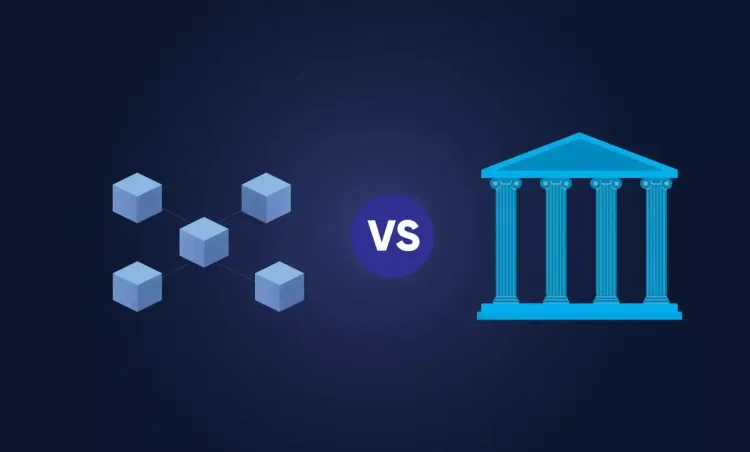The last day of work carries a peculiar mix of excitement and nostalgia. You hand in your badge, exchange final hugs, and step into a new season of life. Many imagine that such a moment deserves a grand farewell — chandeliers, champagne, maybe even a rented ballroom. But lately, that expectation has started to feel outdated.
People are discovering that heartfelt farewells don’t need lavish spending. The best retirement parties are not the biggest, but the most sincere. They celebrate the human stories behind the career, not the catering. In truth, your retirement party might be cheaper than you think — and better for it.
Let’s explore why the modern send-off has traded extravagance for authenticity, and why that’s a good thing for both hearts and wallets.
Sentiment Matters More Than Spectacle
What guests remember most is never the centerpiece. It’s the way someone’s voice cracked during a toast or how laughter lingered long after dessert. Emotion outlasts expense.
In earlier decades, retirement parties were social performances — the kind that demanded formal invitations, three-course meals, and rented venues. Yet the world has shifted. People crave connection, not ceremony. A cozy gathering filled with warmth can outshine an event that looks perfect but feels hollow.
A simple playlist of favorite songs, a few framed photos, and genuine conversation often do more than any five-figure budget. These intimate touches remind everyone what the celebration is really about — the relationships built over years, the memories made, and the lives touched along the way.
Meaningful doesn’t have to mean expensive. In fact, sentiment often shines brightest when money steps out of the spotlight.
Rising Costs Make Scaling Back Smart
The rising price of everything — from food to flowers — has forced many to rethink what celebration really means. Scaling back used to feel like compromise. Now, it feels like wisdom.
Inflation has made the average event budget balloon. But cutting costs doesn’t have to mean cutting joy. Choosing to simplify creates clarity. When you remove the excess, what remains is purpose.
Instead of renting a banquet hall, some retirees are choosing their backyard or a community space. Instead of hiring a professional planner, they lean on friends with creative flair. These decisions don’t just save money — they make the event more personal.
Scaling back also eases emotional pressure. There’s less stress, less comparison, and more presence. You stop worrying about the size of the guest list and start enjoying the people who actually show up.
What once felt like “settling” has become the smarter, saner way to celebrate.
DIY and Potluck Parties Build Community
There’s a certain charm in homemade gatherings. When everyone brings a dish, a story, or a small contribution, the event becomes more than a party — it becomes a collective memory.
Potluck-style celebrations naturally foster connection. They remove hierarchy and replace it with participation. Colleagues swap recipes, families mingle, and laughter spills across the table. That shared effort reflects the same teamwork that defined many careers.
DIY touches can turn an ordinary setting into something unforgettable. Handwritten place cards, a collage of old photos, or even a homemade dessert table tell a story that money can’t buy. You don’t need event staff or crystal glassware to create warmth.
The beauty of a potluck or DIY retirement party lies in its imperfections. They remind everyone that life — and work — are built through shared effort, not flawless presentation.
And when guests leave, they carry more than leftovers. They take home a sense of belonging.
Virtual and Hybrid Farewells Save Big
Modern goodbyes have found a new stage — the screen. While virtual celebrations began out of necessity, they’ve since become a thoughtful, cost-effective choice.
Hosting a retirement party online or in a hybrid format lets friends and colleagues join no matter where they live. There’s no airfare, no catering minimum, and no logistics headache. Yet the emotional payoff can still be immense.
A digital slideshow, pre-recorded messages, or live video tributes can be surprisingly moving. One retiree described her Zoom farewell as “the most personal event of my life,” because it gathered people she hadn’t seen in years.
Technology also levels the playing field. Whether you’re saying goodbye from a small town or a corporate headquarters, you can bring everyone together with a few clicks.
Virtual doesn’t mean detached — not when the intention is clear and the spirit is sincere.
The Gift Shift: Experiences Over Items
Once upon a time, retirement gifts were predictable — a gold watch, a pen, or a framed certificate. Today, the trend is shifting toward experiences, not objects.
A shared trip, a cooking class, or even a night out with close friends means far more than another keepsake. Memories outlast material things. They also cost less, especially when guests contribute collectively.
Many workplaces now organize “experience funds,” where colleagues chip in for a meaningful outing rather than a physical present. It’s not just thoughtful — it’s sustainable.
This evolution reflects a broader social change. People are moving away from accumulating and toward experiencing. The message behind these modern gifts is simple: “We value time with you more than things for you.”
In the end, that’s what retirement itself is about — time reclaimed and moments made.
Personalization Over Prestige
Prestige once defined success. The biggest hall, the fanciest dress code, the most exclusive guest list. But prestige is impersonal.
Today, personalization sets the tone. A retirement celebration tailored to the individual’s story feels richer and more memorable than any formal banquet.
A teacher might host a “Class Dismissed” picnic under an old oak tree. A nurse could choose a “Healing Hands” brunch surrounded by flowers. A pilot might prefer a casual hangar barbecue. The possibilities are endless because they’re rooted in personality, not protocol.
Personal touches — from curated playlists to themed décor — allow people to reflect on their journey in ways that feel authentic. They remind everyone that careers are lived, not displayed.
Prestige fades fast. Personal connection endures. And it costs far less to create.
Emotional Closure Without Financial Strain
Retirement brings emotional complexity. You’re celebrating a lifetime of work while letting go of familiar rhythms. That sense of closure doesn’t depend on cost.
The most meaningful farewells are often the quietest. A small dinner surrounded by close friends can bring more peace than a ballroom ever could. Honest toasts, gentle laughter, and a few shared tears can transform a simple setting into something sacred.
One retired nurse once described her farewell picnic as “the happiest unplanned event of my life.” Guests brought homemade dishes, and the only decoration was a blanket of autumn leaves. Yet the emotions that day stayed with her far longer than any luxury dinner might have.
What mattered was the connection — not the catering. Emotional closure doesn’t come from spending. It comes from sharing.
Corporate Culture Is Adapting Too
Even workplaces are rethinking the way they celebrate retirements. The age of corporate extravagance is fading, replaced by smaller, more sincere gestures.
Companies have realized that gratitude doesn’t need glitter. A heartfelt video montage, a handwritten card, or a short virtual toast can convey appreciation more effectively than an expensive luncheon.
Remote work has also changed the game. Teams spread across cities can now gather online to honor a retiree, sharing stories and photos in digital spaces. This modern approach saves money while expanding participation.
For employers, the shift isn’t just about saving budgets — it’s about aligning with changing values. Employees want recognition that feels genuine, not staged. When appreciation is expressed through real words rather than formal scripts, it resonates deeply.
This cultural evolution reflects a broader workplace truth: sincerity has better returns than spectacle.
Celebrating on Your Terms
Perhaps the best part about modern retirement culture is freedom. There’s no one right way to celebrate.
You might prefer an intimate evening with family, a weekend getaway, or even no formal party at all. The beauty lies in choice. You define the meaning of your own farewell.
Celebrating on your terms also means rejecting pressure — social, financial, or otherwise. If a quiet dinner suits you better than a crowd, that’s your moment. If you want laughter around a barbecue instead of speeches on a stage, that’s equally valid.
When celebration becomes self-defined, it regains its power. The goal isn’t to impress. It’s to express.
Your farewell should feel like you — authentic, grounded, and at peace.
A Cultural Turning Point
This shift toward simplicity reflects more than personal preference. It mirrors a broader cultural realignment.
We’ve entered an age where meaning is measured differently. Across milestones — weddings, birthdays, retirements — people are learning that less can feel like more. We crave connection over luxury, authenticity over appearance.
Social media once made events feel like performances. Now, many are deliberately choosing privacy over publicity. The joy of a moment doesn’t need an audience. It only needs sincerity.
The growing popularity of modest retirement parties shows how deeply that mindset has taken hold. The goal is no longer to prove success, but to celebrate completion — gracefully, gratefully, and within reason.
This evolution is more than practical. It’s profoundly human.
Conclusion
The farewell to a career doesn’t need a grand stage to be grand. The most touching retirement parties share one thing: authenticity. Whether it’s a simple lunch, a potluck, or a video call, what counts is the emotion in the room — real, unscripted, and warm.
You don’t need a planner or a hefty budget to create that kind of moment. You only need people who care, stories worth sharing, and time to reflect on the journey behind you.
So yes, your retirement party might be cheaper than you think. But in stripping away the excess, you might discover something richer: a celebration that feels like home.
Because the value of a farewell isn’t measured in dollars — it’s measured in meaning.




